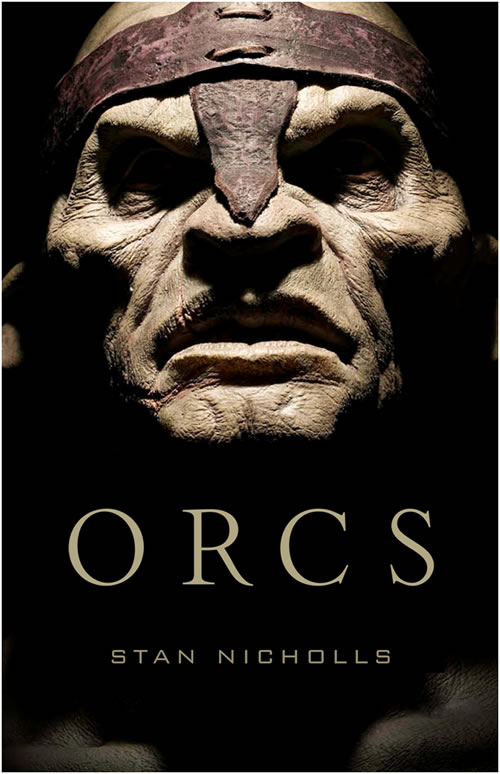Monday, August 15, 2011
Orcs: Fantasy's Antiheroes
In recent years (well, maybe not so recent anymore) there has been a huge upswing in Antiheroes in fantasy fiction. Not to say the idea was born recently. Many feel that Robert E. Howard was doing it in the 1930's, and indeed, the pulps were full of anti-heroes like The Shadow. But the idea of an antihero, according to Wikipedia (take it with a grain of salt), has been around since at least the 18th century. However, the definition has always been so broad that most authors and readers have their own version of what constitutes an antihero.
For me the definition is pretty simple: Someone who uses traditionally villainous tactics in an effort to promote the greater good. That's a pretty general definition, and leads to the necessity of other definitions, which will vary from fictional work to fictional work. Such as, what constitutes the "greater good?"
Ok, so how does this all relate to Orcs? As you may know, I am working on an entry for Scott Oden's Orcs anthology. I had actually written one story where the Orcs were the antagonists, but they were kind of secondary in nature, and the story really wouldn't fit in a collection of fiction where the main focus was the Orcs. So, I set that one aside for something else, and started a new one. In this story, Mahak is an Orc, but he's also a hero. This presents certain challenges as Orcs are normally perceived as villains, and to make them heroes runs the risk of removing what differentiates them from just being "ugly humans." In other words, they need to act like Orc Heroes. And for that to happen, you have present them in the proper context.
This reminds me of the difference between Disney's Hercules and the mythological Hercules (or Heracles). In mythology, Herc was a right bastard. He killed his own wife and children in a fit of jealousy. He was often unfaithful, self-centered and generally not all that likable by modern standards. But by ancient Greek standards, he was quite heroic. He fought monsters, furthered the cause of mortals, and upheld the many virtues that ancient Greeks held as heroic. His evil deeds were just seen as his own half-human weakness, and really just normal weaknesses in general (the Greek Gods were a bunch of bastards and bitches most of the time as well). Yet the Disney version was much more innocent, forthright and had all of the qualities we deem "heroic" in modern times.
And that's why it works. The character is still there, and he still elicits the same reaction from modern viewers that the mythological version elicited from the ancient Greeks. He just does so in a different manner to appeal to different social sensibilities.
So, again, back to Orcs. In order for an Orc to be "heroic" he has to uphold the virtues that Orcs hold in high regard. This in itself can also vary from author to author. But the key, in my opinion, is to present those virtues in a positive light, and then remain consistent. An Orc hero should be proud to be an Orc, and should remain so even after the story is over. There should be no "turning to the Good Side" at that critical moment. And in the end, his chosen cause should be furthered by his actions, no matter how vile they may seem.
I am fortunate in that the subject of my story lends itself easily to this line of thought. But I can see that other authors may have more of a struggle with this if they want to make the protagonist an Orc. Orcs are a violent, generally nasty lot. So, how does one make them sympathetic without stripping them of their heritage?
Labels:
antiheroes,
Orcs
Subscribe to:
Post Comments (Atom)

1 comment:
I'm struggling with that very topic at the moment myself.
Post a Comment